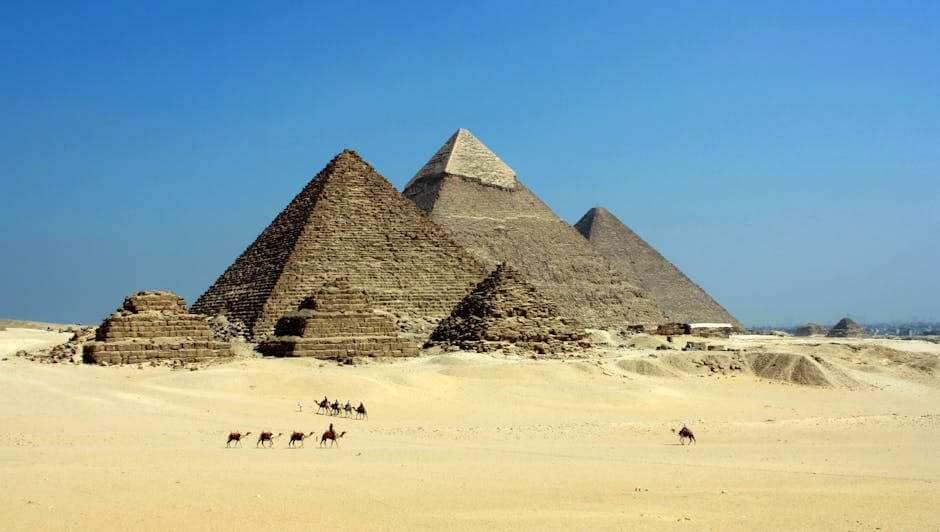Introduction to Pharaohs
Definition and Origin of the Term “Pharaoh”
The word “Pharaoh” comes from the Egyptian phrase “per-aa,” which means “great house.” Imagine it like this: when you talk about the “White House,” you’re not just talking about the building, but also the President and the government, right? Similarly, “Pharaoh” referred not just to the king’s palace, but to the king himself and all his power.
Over time, “Pharaoh” became the title for the rulers of ancient Egypt. It’s like calling someone “King” or “Queen.” 👑 These rulers were incredibly important and held a unique position, unlike any other leaders in the ancient world.
Overview of Pharaohs’ Historical Significance
Pharaohs were the leaders of ancient Egypt for thousands of years. They were like the captains of a giant ship, guiding their people through good times and bad. Their decisions shaped the entire civilization, from the buildings they built to the laws they made.
The pharaohs were not just political leaders; they were also seen as gods! This made them incredibly powerful and influential. Their story is a fascinating mix of politics, religion, and culture that still captures our imagination today.
Key Takeaways
- Pharaohs were both political leaders and divine figures in ancient Egypt, embodying the connection between the gods and the people.
- Their responsibilities included maintaining order (Ma’at), overseeing agriculture, leading military campaigns, and performing religious rituals.
- The pharaoh’s divine status legitimized their authority and was crucial for societal stability.
Divine Status of Pharaohs
Pharaohs as Living Gods
Relationship with Major Deities (Ra, Osiris, Horus)
The ancient Egyptians believed their pharaohs were living gods on Earth. They were seen as the link between the human world and the divine realm. They were closely associated with important gods like Ra, the sun god; Osiris, the god of the afterlife; and Horus, the god of the sky.
Think of it like this: if the gods were like the owners of a company, the Pharaoh was like the CEO they appointed to run things on Earth. Each pharaoh was believed to be the earthly embodiment of Horus while alive and became associated with Osiris after death. This connection to the gods gave them immense power and authority. 🤩
Symbolism of Divine Kingship
Many symbols represented the Pharaoh’s divine power. For example, they often wore a special crown that combined the crowns of Upper and Lower Egypt, symbolizing their rule over the entire land. They also carried a crook (like a shepherd’s staff) and a flail (a tool for farming), which showed their role as protectors and providers for their people.
These symbols were like badges of honor, showing everyone that the pharaoh was not just an ordinary person, but a divine ruler chosen by the gods. Have you ever seen pictures of pharaohs with these symbols? They were a constant reminder of their special status.
The Concept of Ma’at
Importance of Order and Justice
Ma’at was a very important idea in ancient Egypt. It represented truth, justice, balance, and cosmic order. Think of it as the glue that held their society together. The Egyptians believed that the universe had a natural order, and it was the Pharaoh’s job to maintain that order.
If Ma’at was disrupted, it could lead to chaos and disaster. It was like a delicate ecosystem – if one part was thrown off balance, the whole system could suffer. The Pharaoh, as the living god, was responsible for ensuring that everything in Egypt ran smoothly and fairly.
Rituals to Maintain Ma’at
To maintain Ma’at, pharaohs performed many rituals and ceremonies. These rituals were like prayers or offerings to the gods, asking for their help in keeping the world in balance. They were often performed in temples, which were seen as the homes of the gods on Earth.
These rituals were not just empty gestures; they were a vital part of the pharaoh’s duties. They were a way of showing respect to the gods and ensuring their continued favor. Can you imagine the pressure of being responsible for the entire universe’s order? 🤯
Political Power of Pharaohs
Absolute Authority and Governance
Law-Making and Administration
Pharaohs had absolute power in ancient Egypt. They were the ultimate authority, and their word was law. They made all the important decisions for the country, from setting taxes to declaring war.
It was like being the ultimate boss – everyone had to follow their orders. They appointed officials to help them govern, but the final say always rested with the Pharaoh. This system ensured that decisions could be made quickly and efficiently.
Role of the Vizier and Bureaucracy
The Vizier was the Pharaoh’s right-hand man, like a prime minister or chief advisor. They helped the Pharaoh run the country and oversaw the bureaucracy, which was the network of officials and scribes who carried out the Pharaoh’s orders.
Imagine the Vizier as the manager of a large team, making sure everyone was doing their job and that everything was running smoothly. The bureaucracy was like the team itself, each member with their own specific tasks and responsibilities. It was a well-organized system that helped the Pharaoh manage such a large and complex society.
Economic Responsibilities
Taxation and Resource Management
Pharaohs were in charge of the economy. They collected taxes from the people, which were usually paid in goods like grain or livestock, rather than money. These taxes were used to fund the government, build temples and monuments, and pay for the army.
I remember once I had to pay taxes. It was not a fun experience. But in ancient Egypt, taxes were crucial for keeping the country running. The Pharaoh had to make sure that resources were collected and distributed fairly, ensuring that everyone had what they needed.
Control over Agriculture and Irrigation
Agriculture was the backbone of the Egyptian economy. The Nile River flooded every year, leaving behind fertile soil that was perfect for farming. The Pharaoh controlled the irrigation systems, which were canals and ditches that brought water from the Nile to the fields.
This control over water was essential for ensuring good harvests. Without it, the crops would fail, and the people would starve. The Pharaoh was like a master gardener, making sure that the land was well-watered and productive. It’s amazing how important the Nile was to their survival, isn’t it?
Military Leadership
Role as Commander-in-Chief
Defense Against External Threats
The Pharaoh was also the commander-in-chief of the army. They were responsible for defending Egypt from its enemies. They led their troops into battle and made strategic decisions to protect their land and people.
It was like being the captain of a sports team, but with much higher stakes. The Pharaoh had to be a strong and courageous leader, inspiring their soldiers to fight for their country. They had to be skilled in warfare and strategy to ensure victory.
Internal Security and Order Maintenance
The Pharaoh was also responsible for maintaining order within Egypt. They had to make sure that people followed the laws and that there was no internal conflict. They used the army to enforce the law and put down any rebellions.
It was like being the sheriff of a town, keeping the peace and making sure everyone was safe. The Pharaoh had to be fair but firm, ensuring that justice was served and that order was maintained. It was a tough job, but essential for keeping society stable.
Religious Responsibilities
High Priest of Every Temple
Conducting Rituals and Sacrifices
As the living god, the Pharaoh was also the high priest of every temple in Egypt. They were the chief intermediary between the gods and the people. They conducted rituals and sacrifices to honor the gods and ensure their continued favor.
These rituals were like important meetings with the gods, where the Pharaoh would ask for their blessings and protection. Sacrifices, such as offerings of food or animals, were a way of showing gratitude and respect. It was a sacred duty that only the Pharaoh could perform.
Appointing Priests and Managing Temples
The Pharaoh also appointed priests to serve in the temples. These priests were like the Pharaoh’s assistants, helping him carry out his religious duties. They performed daily rituals, maintained the temples, and cared for the statues of the gods.
The Pharaoh was like the CEO of a large religious organization, overseeing all the temples and their staff. They had to make sure that everything was running smoothly and that the gods were properly honored. It was a huge responsibility that required a lot of organization and dedication.
Building Monuments and Temples
Significance of Pyramids and Temples in Egyptian Culture
Pharaohs were famous for building massive monuments and temples. The most famous are the pyramids, which were built as tombs for the pharaohs. Temples were built to honor the gods and goddesses.
These buildings were not just impressive structures; they were also symbols of the Pharaoh’s power and connection to the gods. They were a way of leaving a lasting legacy and ensuring that they would be remembered for generations to come. Have you ever visited a really old building? It’s like stepping back in time!
| Structure | Purpose |
|---|---|
| Pyramids | Tombs for pharaohs, ensuring their place in the afterlife |
| Temples | Places of worship, honoring gods and goddesses |
Legacy of the Pharaohs
Impact on Egyptian Society and Culture
Contributions to Art, Architecture, and Religion
The pharaohs left a lasting impact on Egyptian society and culture. They commissioned incredible works of art, such as statues, paintings, and jewelry. They built monumental structures like the pyramids and temples, which still stand today as testaments to their power and ingenuity.
Their religious beliefs shaped the way Egyptians lived their lives and understood the world around them. They were like the ultimate influencers, shaping the trends and beliefs of their time. Their legacy can still be seen in the art, architecture, and stories that have survived from ancient Egypt.
Historical Perspectives on Pharaohs’ Rule
Historians have studied the pharaohs for centuries, trying to understand their role and impact. Some see them as benevolent rulers who cared for their people, while others view them as tyrants who exploited their power. The truth probably lies somewhere in between.
It’s like trying to understand a complex character in a book – there are always different sides to the story. The pharaohs were human beings, with both strengths and weaknesses. They made mistakes, but they also achieved great things. Their story is a reminder that leadership is a complex and challenging role.
Conclusion
Summary of the Pharaoh’s Role in Ancient Egypt
The Pharaohs of ancient Egypt were more than just kings; they were seen as living gods. They held absolute power and were responsible for every aspect of their society, from politics and the economy to religion and the military. They maintained order, built incredible monuments, and shaped the culture of one of the greatest civilizations in history.
They were like the sun around which everything else revolved. Their role was unique and multifaceted, combining the duties of a king, a priest, and a god. Their story is a fascinating glimpse into a world very different from our own.
Lasting Influence on Modern Perceptions of Leadership
The legacy of the pharaohs continues to influence our understanding of leadership today. Their absolute authority and divine status may seem foreign to us, but their responsibilities as rulers, protectors, and providers still resonate. They remind us that leadership is not just about power, but also about service and responsibility.
Their story raises important questions about the nature of leadership and the relationship between rulers and the ruled. What qualities make a good leader? How should power be used? These are questions that we still grapple with today, and the example of the pharaohs provides a valuable historical perspective. What do you think makes a good leader? 🤔

